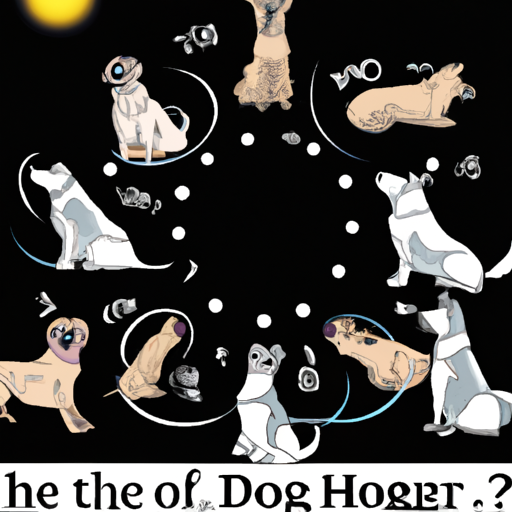“`markdown
Why Do Dogs Howl?
Have you ever wondered why your four-legged friend suddenly breaks into a soulful serenade, sending a chorus of howls up to the moon? Is it some primal call, or are they just trying to get your attention?
1. It’s Part of Their Ancestral DNA
Dogs, as you may well know, are descendants of wolves. In the wild, wolves howl to communicate with each other over long distances.
- Territory: Wolves howl to mark their territory, warning other packs to stay away.
- Unity: They also howl to strengthen the bond within their own pack, reinforcing social structures.
Does this mean your dog is trying to reclaim the wilderness of your backyard? Not necessarily, but that instinctual need to vocalize is still part of their genetic makeup.
2. They’re Trying to Communicate
Dogs use a variety of sounds to express their feelings and needs, and howling is no exception.
- Distress: Dogs may howl when they are in distress or feeling anxious.
- Attention: They might howl to get your attention or to show excitement.
- Response: Some dogs might howl in response to high-pitched noises like sirens or musical instruments.
3. Medical Reasons
If your dog’s howling seems unusual or excessive, it might be a sign of a medical issue.
- Pain: Dogs often howl when they are in pain.
- Age-related issues: Older dogs may howl more due to cognitive dysfunction syndrome (similar to Alzheimer’s in humans).
- Hearing loss: Some dogs might howl more if they’re experiencing hearing loss.
4. Training and Behavior Modification
If your dog’s howling is becoming a nuisance, there are steps you can take to modify this behavior.
- Ignore the howling: If your dog is howling for attention, don’t reward the behavior with attention.
- Reinforce quiet behavior: Reward your dog when they are quiet, especially if there are triggers present that usually lead to howling.
- Provide mental stimulation: Keeping your dog mentally stimulated can help alleviate howling caused by boredom or anxiety.
5. When to Seek Professional Help
If your dog’s howling is causing distress, or if you think it might be a sign of a medical issue, it’s always best to seek professional help.
| When to Seek Help | Actions |
|---|---|
| Unusual howling | Consult a veterinarian to rule out medical issues. |
| Excessive howling | Seek the help of a professional dog trainer or behaviorist. |
FAQ
Q: Why does my dog howl when I play the piano?
A: Dogs often howl in response to high-pitched noises. It’s likely your piano playing is triggering this instinctual response.
Q: Is howling a sign of pain in dogs?
A: Yes, dogs can howl when they are in pain. If your dog’s howling is accompanied by other signs of distress, it’s best to consult a veterinarian.
Q: How can I stop my dog from howling so much?
A: Training and behavior modification can help reduce your dog’s howling. If it’s becoming a serious issue, consider seeking help from a professional dog trainer or behaviorist.
“`



